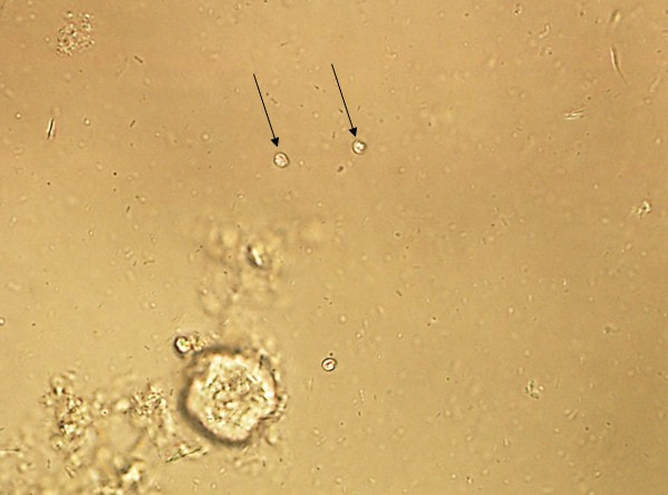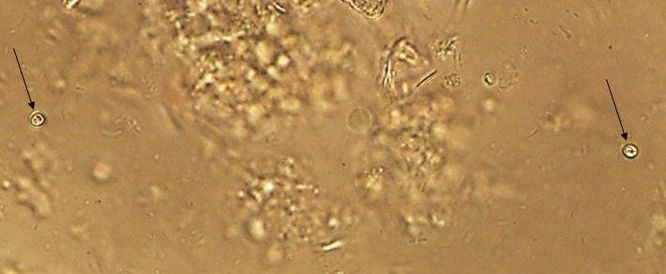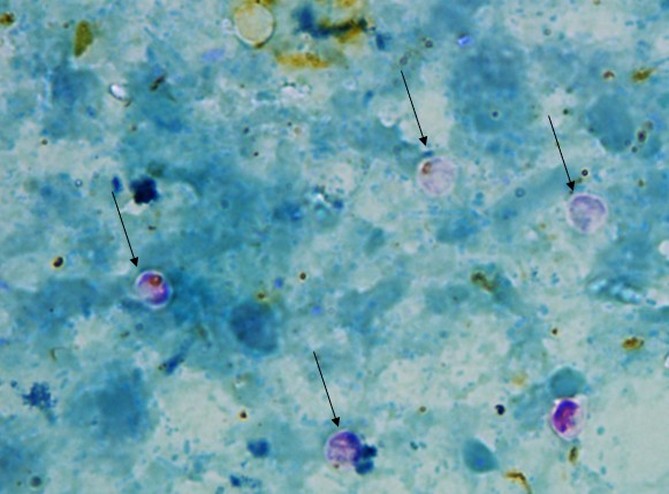|
A 3-month-old calf presented to a large animal clinic in Oklahoma for watery diarrhea. Other herd mates have tested positive for Corona virus, but this calf has been affected longer than the others. A centrifugal fecal flotation with Sheather's sugar solution (specific gravity: 1.26) was performed, and the following tiny parasites measuring approximately 5 micrometer in diameter were observed. Small, round-shaped objects. Highly refractile and often appear to have a single black dot in the center. Original magnification, x400 Original magnification, x1000 Acid-fast staining was also performed on fecal sample. Acid-fast stained sample. Original magnification, x1000 Many thanks for a great case with nice photos to Kamilyah R. Miller, DVM, Tuskegee University, College of Veterinary Medicine They are Cryptosporidium spp. oocysts. It is important to note that Cryptosporidium is very difficult to find via routine fecal examination. Use of Sheather's sugar solution is a key to find them because that will give the oocysts a pink hue. When using the acid-fast staining, the oocysts will appear pink against a blue background. Cryptosporidium is a one-cell protozoan parasite that causes diarrhea in calves and other mammals. Cryptosporidium parvum mainly affects calves younger than 30 days of age. Cryptosporidium ryanae more commonly affects older calves more than one year of age. Cryptosporidium bovis is often seen in adult cattle. There’s no approved treatment for cattle in the United States. The best treatment option is fluid therapy for dehydration, nutritional support and keep the animals in a clean and dry environment. However, halofuginon lactate (Halocur®) is the licensed product in the UK and Canada; it doesn’t cure the disease, but it reduces egg shedding and clinical signs. The best way to prevent cryptosporidiosis is to keep a clean environment where newborn calves are housed, don’t house older calves with newborn calves and keep feed and water off the ground to prevent fecal contamination. |
Archives
July 2024
Have feedback on the cases or a special case you would like to share? Please email us ([email protected]). We will appropriately credit all submittors for any cases and photos provided.
|



